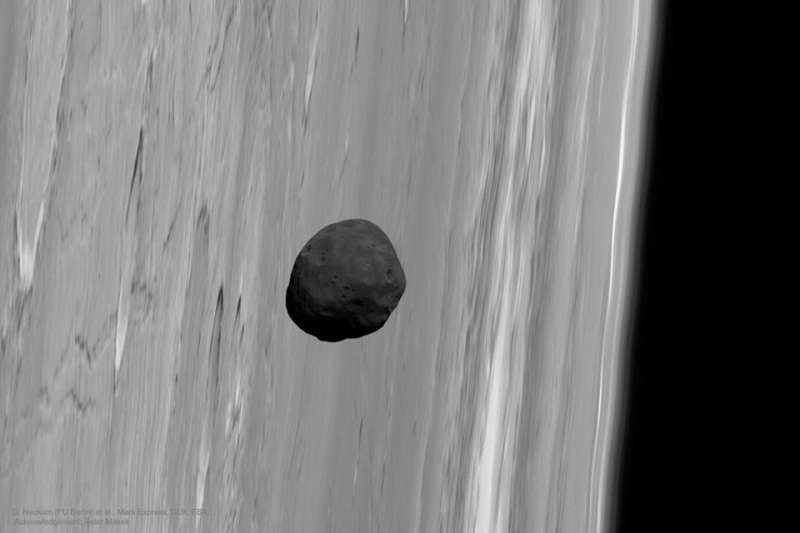 |
Астронет: Астрономическая картинка дня Спутник Марса Фобос от аппарата "Марс-Экспресс" http://www.astronet.ru/db/msg/1706415/eng |
Credit & Copyright: G. Neukum
(FU Berlin) et al., Mars Express,
DLR,
ESA;
Acknowledgement: Peter Masek
Explanation:
Why is Phobos so dark?
Phobos, the largest and innermost of two
Martian moons, is the darkest moon in the entire
Solar System.
Its unusual orbit and color indicate that it may be a captured
asteroid composed of a mixture of ice and dark rock.
The featured picture
of Phobos near the limb of
Mars
was captured in 2010 by the robot spacecraft
Mars Express currently orbiting Mars.
Phobos is a heavily cratered and
barren moon, with its
largest crater located on the far side.
From images like this,
Phobos has been determined
to be covered by perhaps a meter of
loose dust.
Phobos orbits
so close to Mars that from some places it would appear to rise and
set twice a day, but from other places
it would not be visible at all.
Phobos' orbit around Mars is
continually decaying -- it will likely
break up with pieces crashing to the Martian surface in about 50 million years.
Authors & editors:
Robert Nemiroff
(MTU) &
Jerry Bonnell
(USRA)
NASA Web Site Statements, Warnings,
and Disclaimers
NASA Official: Jay Norris.
Specific
rights apply.
A service of:
LHEA at
NASA /
GSFC
& Michigan Tech. U.
